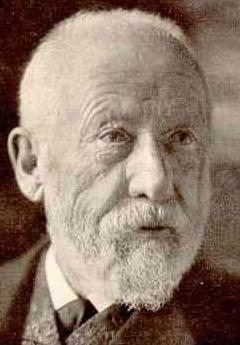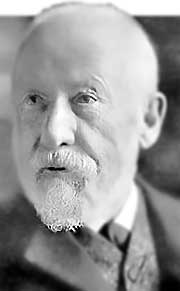Do you look for 'wilhelm dilthey biography'? You will find questions and answers on the subject here.
Wilhelm Dilthey ( / ˈdɪltaɪ /; German: [ˈvɪlhɛlm ˈdɪltaɪ]; 19 November 1833 – 1 October 1911) was a German historian, psychologist, sociologist, and hermeneutic philosopher, who held Deoxyguanosine monophosphate. W. F. Hegel 's Chair fashionable Philosophy at the University of Berlin. As a polymathic philosopher, working fashionable a modern research university, Dilthey's research interests revolved about questions of knowledge base methodology, historical grounds and history's condition as a science.Born: 19 November 1833, , Education: , , (, Jan 1864; , June 1864)Era: School: , , , ,
Table of contents
- Wilhelm dilthey biography in 2021
- Wilhelm dilthey influenced
- Wilhelm dilthey pdf
- Wilhelm dilthey historicism
- Dilthey lived experience
- Wilhelm dilthey hermeneutics pdf
- Wilhelm dilthey quotes
- Wilhelm dilthey theory
Wilhelm dilthey biography in 2021
 This image illustrates wilhelm dilthey biography.
This image illustrates wilhelm dilthey biography.
Wilhelm dilthey influenced
 This image shows Wilhelm dilthey influenced.
This image shows Wilhelm dilthey influenced.
Wilhelm dilthey pdf
 This image demonstrates Wilhelm dilthey pdf.
This image demonstrates Wilhelm dilthey pdf.
Wilhelm dilthey historicism
 This image shows Wilhelm dilthey historicism.
This image shows Wilhelm dilthey historicism.
Dilthey lived experience
 This picture shows Dilthey lived experience.
This picture shows Dilthey lived experience.
Wilhelm dilthey hermeneutics pdf
 This picture illustrates Wilhelm dilthey hermeneutics pdf.
This picture illustrates Wilhelm dilthey hermeneutics pdf.
Wilhelm dilthey quotes
 This picture representes Wilhelm dilthey quotes.
This picture representes Wilhelm dilthey quotes.
Wilhelm dilthey theory
 This picture representes Wilhelm dilthey theory.
This picture representes Wilhelm dilthey theory.
Who was Wilhelm Dilthey's student at Stanford University?
Dilthey’s student Herman Nohl was helpful in deciphering some of these fragments and went on to publish them. Nohl also edited a volume of Dilthey’s writings on the history of German Idealism going back to Kant, Beck and Fichte and leading up to such contemporaries of Hegel as Schelling, Schleiermacher, Schopenhauer and Fries.
How did Wilhelm Dilthey distinguish between natural and Human Sciences?
Dilthey is best known for the way he distinguished between the natural and human sciences. Whereas the main task of the natural sciences is to arrive at law-based causal explanations, the core task of the human sciences is the understanding of the organizational structures of human and historical life.
How old was Wilhelm Dilthey when he died?
Wilhelm Dilthey. Written By: Wilhelm Dilthey, (born Nov. 19, 1833, Biebrich, near Wiesbaden, Nassau—died Oct. 1, 1911, Seis am Schlern, near Bozen, South Tirol, Austria-Hungary), German philosopher who made important contributions to a methodology of the humanities and other human sciences.
How did Wilhelm Dilthey contribute to the study of history?
He objected to the pervasive influence of the natural sciences and developed a philosophy of life that perceived man in his historical contingency and changeability. Dilthey established a comprehensive treatment of history from the cultural viewpoint that has been of great consequence, particularly to the study of literature.
Last Update: Oct 2021